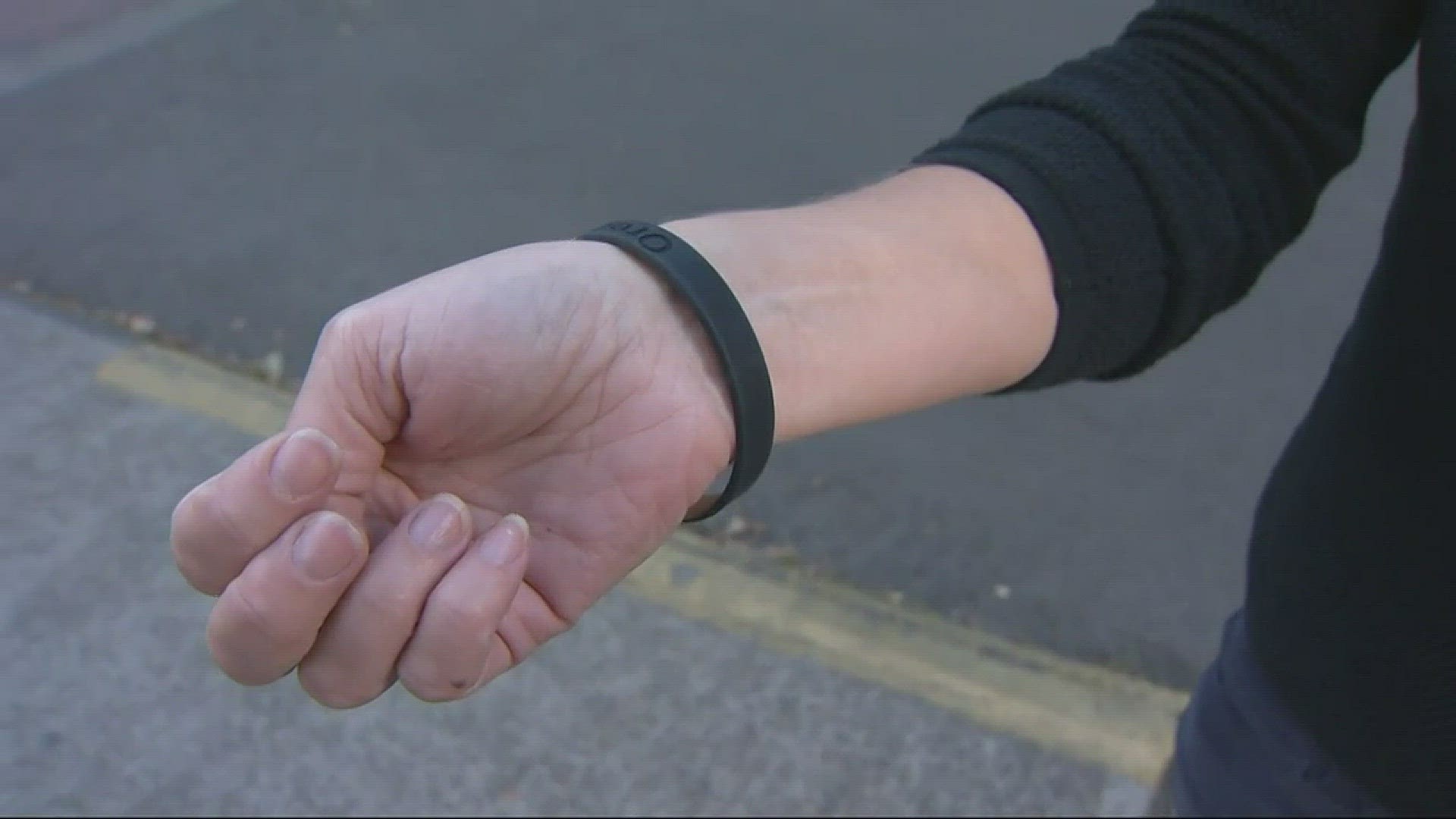BAYTOWN, Texas - As residents return to their homes, questions are arising about the possible health effects of exposure to contaminated floodwater and airborne exposures to health hazards such as mold.
Dr. Cheryl Walker, director of Center for Precision Environmental Health at Baylor College of Medicine, says Baylor is prepared to assist residents returning to their homes with "real-time" monitoring of possible chemical exposures during cleanup and recovery after Harvey.
Working with researchers from UTHealth-School of Public Health, Texas A&M University and Oregon State University, researchers from the Baylor Environmental Health Service, the Dan L Duncan Comprehensive Cancer Center and the Alkek Center for Metagenomics and Microbiome Research are teaming up on a project to monitor chemical exposure in communities affected by Hurricane Harvey where cleanup and recovery efforts are now underway.
Wristbands provided by Oregon State were handed out to people who are currently living in or working in homes that were flooded.
Oregon State University professor Dr. Kim Anderson helped develop the wristband and explained how it works.
"The chemicals you’re exposed to while you're wearing them are absorbed into them sort of like a sponge," she said.
The wristbands can detect volatile and semi-volatile chemicals directly from air and water. After seven days, researchers will collect the wristbands for measurement of chemical exposures.
“That’s the mystery. And we want to know what the mystery is,” said Curtis Poulard. He and his 4-year old daughter signed up for the study at a church in Baytown Sunday. “What’s going on in our neighborhoods.”
“No. It’s not going to change colors. What’s going to happen is, it’s going to enter into the wristband. And within a week, I’m going to return it back and they’re going to tell us what exactly is in this wristband,” said Poulard.
"It is so important to establish a cohort of those affected by Harvey to understand short-term and long-term health effects as a result of flood waters," said Dr. Melissa Bondy, professor of medicine-epidemiology and population sciences and associate director for Cancer Prevention and Population Sciences of the Dan L Duncan Comprehensive Cancer Center.
OSU scientists took the wristbands down to Houston last week and handed them out to nearly 200 residents whose property was damaged by the floods.
OSU toxicologist Lane Tidwell was amazed by the devastation he saw.
“Swamped out cars, swamped out houses,” he said. He said community members were eager to take part in the study and to learn what they may be breathing in.
"Of course I was saying 'thank you,' but I heard it so many more times than I even had a chance to say it," he said.
The study participants will wear the wristbands for one week and then send them back to Oregon State to be analyzed.
OSU scientists have the technology to detect more than 1,500 different chemicals in the wristbands, including industrial chemicals, flame retardants, and pesticides.
It's technology they hope will give Harvey victims not only answers, but perhaps a little peace of mind.
"Try and alleviate some of that doubt and fear and concern of the unknown," Tidwell said.
It will take about a year for scientists at OSU to finish analyzing all the wristbands. Why so long you may ask? It's because the scientists want to do what they can to help, but also have to do the work on their own time.
At this point, they do not have any funding for it. They hope that will change.
More information on Harvey environmental health and safety related issues can be found at www.swcoeh.org/harvey. The study is being funded by Baylor College of Medicine.
For more information contact Georgina Armstrong at 713-798-2951 or Melissa Bondy at 713-798-2953
I can't wait for results! Folks in #Baytown wearing bracelets so #BaylorCollegeOfMed can study chem exposure after #Harvey. #khou11 pic.twitter.com/N0l3PQ0qYk
— Melissa Correa (@MCorreaKHOU) September 24, 2017

